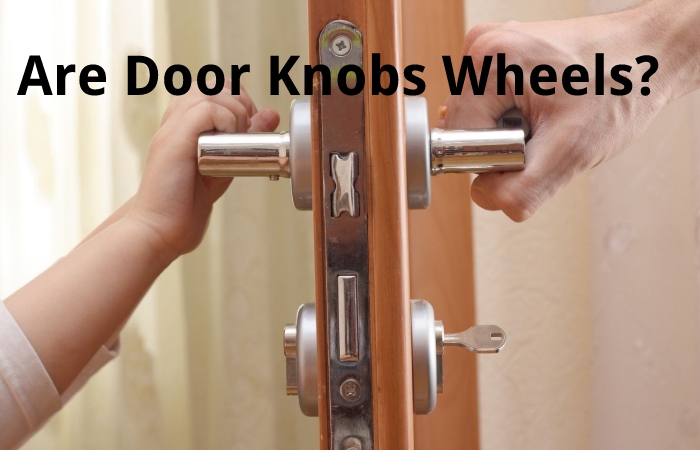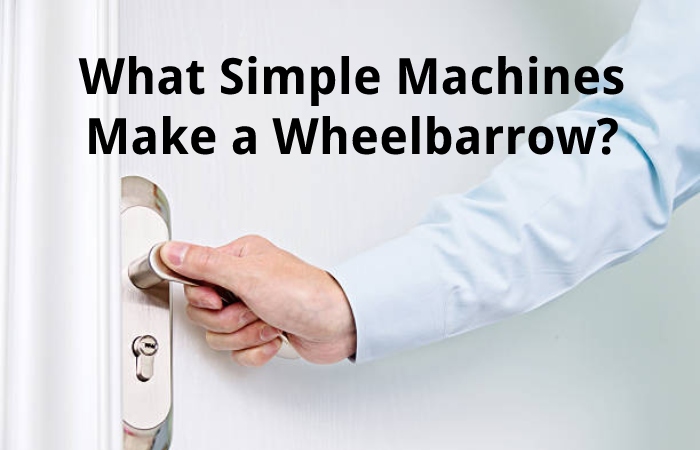Table of Contents
Door Knob Wheel
It door knob wheel is all started with a poll by Chirp user Ryan Nixon. He said he was oratory with his friends if there were more wheels or doors in the world and asked for people’s opinions. In no time, the simple question became one of the most discussed topics on the internet. The ongoing discussion has also raised many other interesting questions, such as whether doorknobs can be considered wheels.
Primary Machines Types of Door Knob Wheel
Simple machines are intended to make work easier using a few parts. A best doorknob is a straightforward machine that only has two main features. Six basic types of simple machinery exist the lever, inclined plane, wedge, pulley, screw, wheel, and axle. Of these, the doorknob most closely resembles the wheel and axle.
Wheel and Axle
A wheel and axle are made by putting a shaft through the center of a giant wheel. Twisting the axle is difficult, but attaching a wheel makes the job easier. In the case of a handle, the knob is the wheel, and the central shaft through the door is the axle. The knob requires the application of less force to turn the knob than what’s needed to turn the post by itself.
Doorknob Actions
When the knob on one side of the door turn, the shaft retracts the spring-loaded latch that holds the door closed. Without the knob, more force would need to turn the post and retract the latch.
Are Door Knobs Wheels?

Technically, doorknobs fall under the group of wheels, and we’ll tell you how. A revolution is any circular object that rotates on an axle and is fixed below a vehicle or other things to enable their movement. A doorknob is careful a wheel and axle, owing to its design. While the handle acts as the wheel, the rod linking it to the door preserve as an axle.
We distinguish that not all of you would persuade by the explanation, just like many Twitter users who believe otherwise.
New Topic Sparks Debate on Door Knob Wheel
- Twitter Users Discuss Door Knobs as Wheels
- Some believe that doorknobs are more like wheels than doors, as they are one of six basic forms of machinery.
- Others say that doorknobs are suitable for use as wheels.
- Some claim that handles are a wheel and axle, whereas a shower curtain is a door.
- Others believe there are more helms than doors, as every doorknob/handle has a wheel.
What Simple Machines Make a Wheelbarrow?

Wheelbarrows carry more properties from place to place, utilizing less force than a person can take. A person would have to make numerous trips to move the items by hand. With the help of the wheelbarrow’s two simple machines—the lever and the wheel and axle—people can save time during the hauling process.
Compound Machines
Wheelbarrows use more than a straightforward machine to reduce the effort needed to do a job, making them compound machines. Adding simple machines spreads the effort and force required to do the job and allows the tool to do more than one job. In this case, the wheelbarrow can lift heavy loads and move them from one place to another.
Levers
Wheelbarrows are levers that raise huge weights with minimum effort, made up of resistance, effort, and pivot arms. The resistance arm is in the center, and the effort arms hoist the barrow and its weight.
Wheel and Axle
Wheelbarrows have a wheel at the pivot with a smaller, tubular axle at the center. The wheelbarrow’s wheel and axle help it move without friction, making it easier to push and pull. As with all wheel and axle assemblies, the wheelbarrow’s wheel and axle have a size ratio corresponding to the support amount of force applied to the axle and the distance the wheel covers. For example, the wheel’s radius may be ten times larger than the axle’s. When force appley the wheelbarrow’s axle (by pushing the wheelbarrow), the axle does ten times more work but travels one-tenth of the distance. When the wheel turns, it covers ten times more ground than the axle would if it were travelling on the ground. The revolution, however, only requires one-tenth of its effort.
A Lesson to Introduce Simple Machines
Six simple machines levers, helms and axles, motivated planes, wedges, pulleys and screws have either one moving part or none. Simple machines provide a motorized advantage, meaning they multiply the user’s muscle power, making it easier to push or pull heavy objects, lift them, or shift the direction in which the things move.
Inclined Planes
Inclined planes are straight, slanted exteriors, with one end higher than the other. Examples include ramps, driveways and staircases. They make work easier because moving a load up the ramp takes less effort. The trade-off is that the pack has to move to a more incredible coldness to get it to the next equal.
Wedges
V-shaped wedges look like inclined planes but work otherwise. The wedge can be an effort in one of three ways. For example, scoops work by lifting heavy objects, an axe pries two parts of a log apart, and a doorstop prevents a door from moving.
Pulleys
A pulley consists of a wheel’s rope, belt or chain fitted into the groove. It works by lessening the amount of effort needed or the direction of force required to lift an object. A single, secure pulley — like a flagpole — switches the focus of energy needed to raise that flag. Multiple pulleys decrease the necessary effort by allocating the effort over two, three, or four devoted pulleys. The trade-off: increasing the number of winches means cumulative the distance that the rope, chain or belt needs to travel, thus requiring it to be longer.
Conclusion
If you’re trying to discover if there are more doors than wheels in the world, you might disappoint that there isn’t one. Think about it. You can find gates in houses, office buildings, and even washing machines, cars, and cupboards.
Similarly, from trolleys to roller blades, many things come with wheels. So, finding a sure answer to this debate is near impossible.
Also Read: Pixel 3 Xl 128GB – Software, Camera, Price, And More
